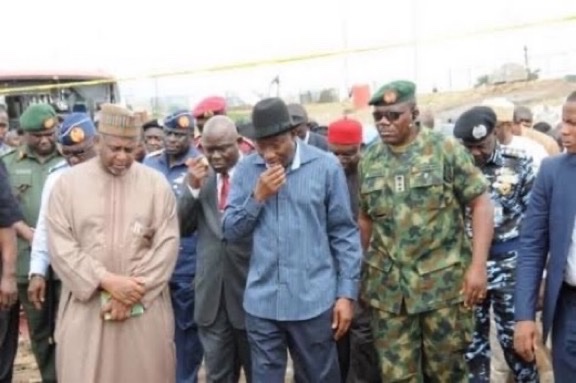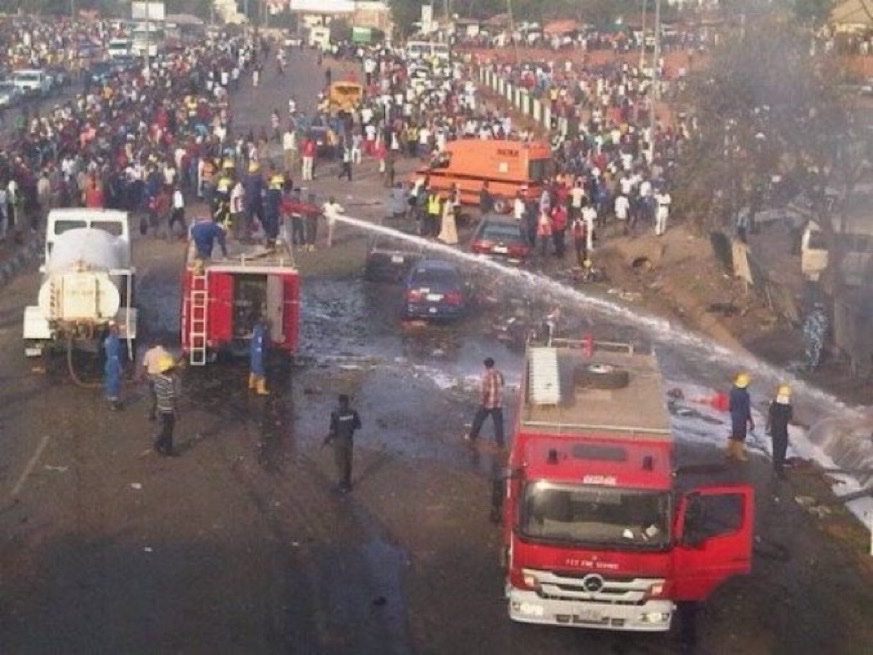On the somber morning of April 14, 2014, at approximately 6:45 am, the tranquility of Nyanya, Abuja, was shattered by the deafening roar of two explosive devices. These bombs tore through a bustling bus station, wreaking havoc and claiming the lives of at least 88 individuals, while leaving over 200 others injured. Nestled 8 kilometers southwest of the central Federal Capital Territory, this bus station had become a hub of activity, connecting communities and travelers.
The insidious explosives, cunningly concealed within vehicles, erupted during the frenetic rush hour, sending shockwaves of destruction through the outskirts of Abuja. The initial bomb blast was merely the prelude to a series of subsequent explosions, as the inferno engulfed nearby vehicles, setting ablaze fuel tanks and amplifying the devastation.
The scene that unfolded was a nightmare incarnate, an image etched in the collective memory of those who bore witness. Body parts lay strewn amidst the debris, a grim testament to the indiscriminate violence that had been unleashed. Traumatized survivors, reeling from the blast’s impact, fled in desperation, seeking refuge even in the depths of drainage systems, only to find themselves further injured.
Abbas Idris, the stalwart head of the Abuja Emergency Relief Agency, somberly confirmed the grim toll: 71 lives lost, and 124 souls left grievously wounded. This bus station, a lifeline for an ethnically and religiously diverse community, now stood as a symbol of unspeakable tragedy.
READ ALSO: Alligator Baiting Horrors: The Gruesome Exploitation of African Infants in America Slave Era
Manzo Ezekiel, the voice of reassurance amidst chaos, spoke on behalf of the National Emergency Management Agency, providing solace to the countless victims undergoing treatment in hospitals, their bodies and spirits scarred by the harrowing ordeal.
In the days following the attack, the tally of casualties continued to mount. By April 15, the death toll had risen to 75, as dedicated investigators painstakingly combed through the wreckage, seeking answers amidst the devastation. By April 18, the grim toll reached its zenith at 88 lives lost, with over 200 souls bearing the physical and emotional scars of that fateful morning.
Six days after the atrocity, Boko Haram, the insidious perpetrator of this heinous act, claimed responsibility. Their vile deed, executed mere hours before the infamous Chibok kidnapping, served as a chilling reminder of the terror they wrought.

Amidst the wreckage and despair, Nigerian President at the time, Goodluck Jonathan, stood in solidarity with his grieving nation. Surveying the scene of the blast, he offered words of condolence and resolve, vowing to overcome the darkness cast by Boko Haram’s atrocities and steer the nation towards a brighter future.
Years passed, wounds healed, but the scars remained etched in the collective memory. Despite the closure of Nyanya Park in the aftermath of tragedy, its gates have since reopened, a testament to the resilience of the Nigerian spirit. Today, it stands once again, serving as a vital artery of transportation, a beacon of hope amidst the shadows of the past.

